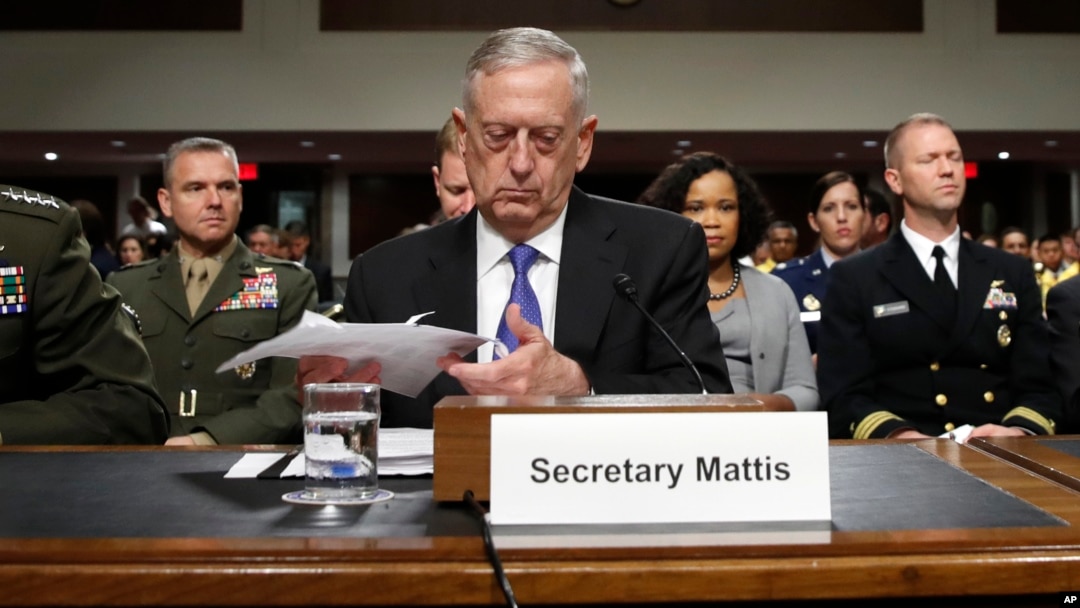U.S. President Donald Trump has given Defense Secretary Jim Mattis the authority to set troop levels in Afghanistan.
Speaking to the Senate Appropriations Subcommittee on Defense, Mattis testified that the president had authorized his ability to set troop numbers in Afghanistan on Tuesday, noting that any change to the current troop level of 8,400 would not come immediately.
"The revised Afghanistan strategy with the new approach will be presented to the president for his approval in the coming weeks," the defense secretary told lawmakers.
This could mean a boost in the number of U.S. forces in Afghanistan, where 16 years of fighting against the Taliban and other militants has resulted in a stalemate.
Mattis said Wednesday any decision on the number of U.S. military personnel will come after consulting other U.S. agencies and will be in line with President Donald Trump's "strategic direction and foreign policy."
Your browser doesn’t support HTML5
Mattis: US 'Not Winning' in Afghanistan
In a separate hearing a day earlier, the military chief told lawmakers the United States is not gaining in the fight to stabilize Afghanistan and vowed to present a strategy to Congress "by mid-July."
"We are not winning in Afghanistan right now, and we will correct this as soon possible," Mattis told the Senate Armed Services Committee on Tuesday.
Mattis acknowledged that the Trump administration is currently in a "strategy free time" concerning Afghanistan.
The defense secretary called on Congress to provide the Pentagon with a budget, "not a continuing resolution," that is "passed on time," in order to push the U.S. military through readiness shortfalls while maintaining a support role in two wars.
Mattis on Tuesday equated "winning" in Afghanistan with the Afghan government's ability to handle the enemy's level of violence, which he said will require a "residual force" of U.S. and allied forces to train Afghan troops and maintain high-end capabilities.
FILE - U.S. Defense Secretary James Mattis, third right, walks with U.S. Army Command Sergeant Major David Clark, left, and General Christopher Haas, second right, as he arrives to the Resolute Support headquarters in Kabul, Afghanistan, April 24, 2017.
"It's going to take a change in approach," Mattis said.
But he said the United States cannot quit on Afghanistan because problems that threaten the U.S. and its economy arise out of "ungoverned spaces."
On Saturday, a uniformed member of the Afghan Special Forces turned his gun on U.S. military personnel, killing three American soldiers and wounding one other.
The Pentagon said 25-year-old Sgt. Eric Houck, 29-year-old Sgt. William Bays and 22-year-old Corporal Dillon Baldridge of the Army's 101st Airborne Division were killed during the attack in the eastern Afghan province of Nangarhar.
Republican Senator John McCain highlighted the attack during Tuesday's hearing. He said Congress and the Department of Defense should not ask the families of service members to "sacrifice any further" without an Afghanistan strategy in place.


